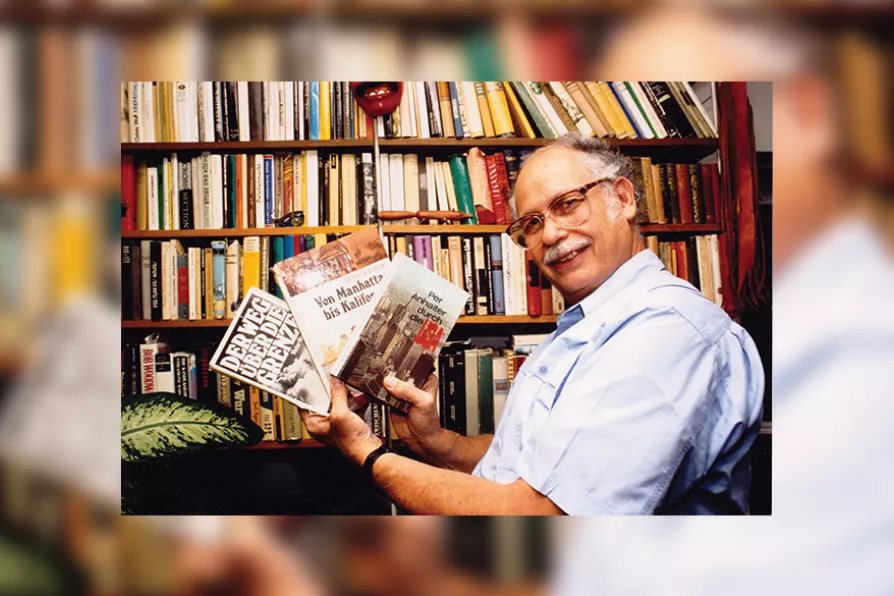RITA DI SANTO draws attention to a new film that features Ken Loach and Jeremy Corbyn, and their personal experience of media misrepresentation

 Victor Grossman with some of the works he published in the GDR
[Uli Kohls]
Victor Grossman with some of the works he published in the GDR
[Uli Kohls]
IN THE popular imagination, the German Democratic Republic is indelibly linked with ideas of authoritarianism, poverty, secret police, stuffy bureaucracy and a generalised absence of democracy.
Victor Grossman is uniquely well placed to challenge this McCarthyite narrative. Born in New York in 1928, he joined the Communist Party while studying at Harvard in the late 1940s. Drafted into the army, he defected to the GDR while stationed in Austria.
Marrying a German woman, studying and working, raising children and grandchildren, he lived in East Germany until its 1990 absorption into the Federal German Republic (FRG). He still lives in Germany today.

The decision highlights the tension between freedom of expression and the state’s role in shaping historical memory at former concentration camps, reports LEON WYSTRYCHOWSKI













